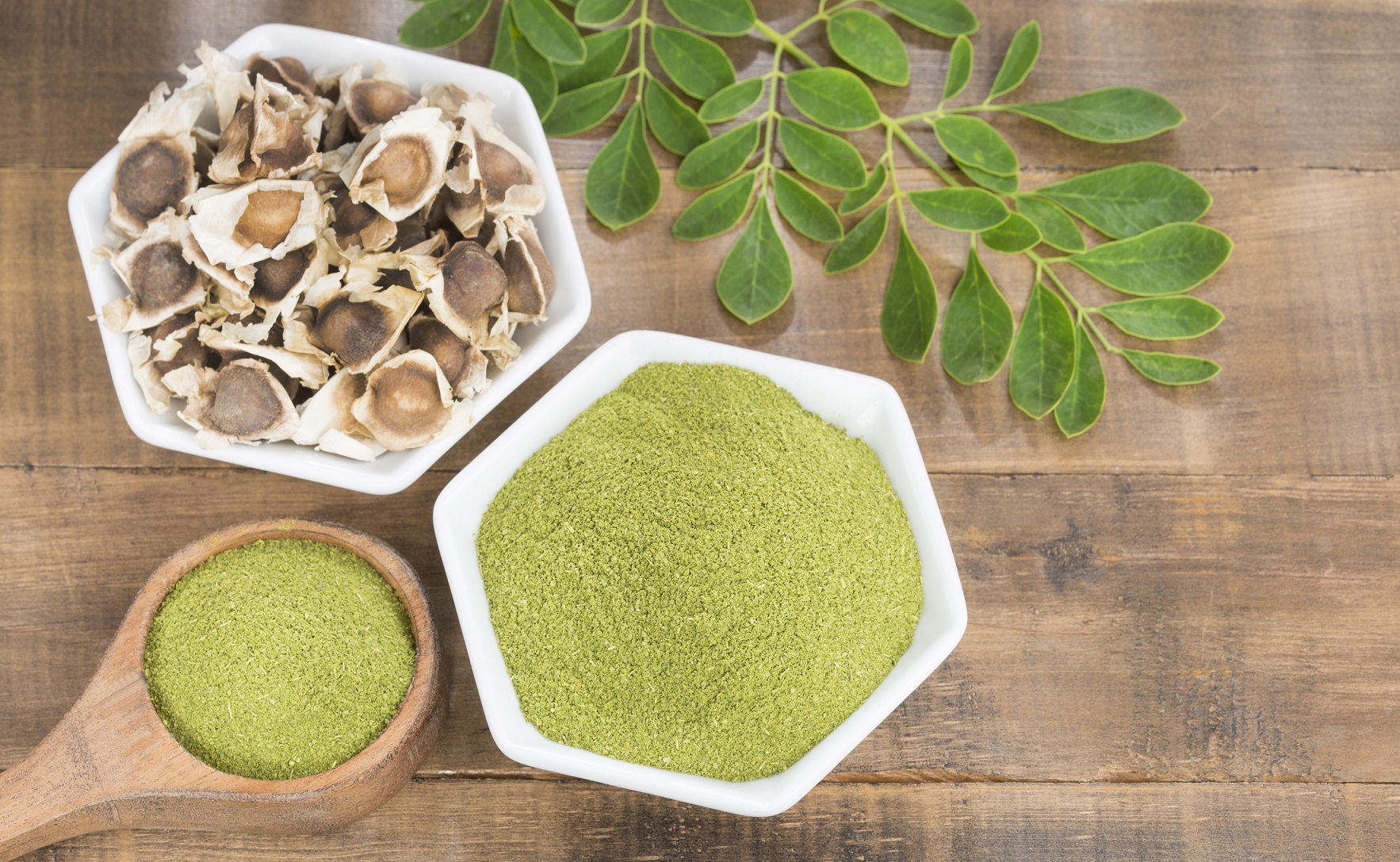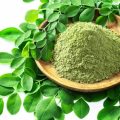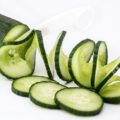
Moringa is a plant that is native to areas of India, Pakistan, Bangladesh, and Afghanistan. It is also grown in the tropics. The leaves, bark, flowers, fruit, seeds, and root are used to make medicine.
Moringa is used for asthma, diabetes, obesity, symptoms of menopause, and many other conditions, but there is no good scientific evidence to support these uses. Oil from moringa seeds is used in foods, perfume, and hair care products, and as a machine lubricant.
Moringa is an important food source in some parts of the world. Because it can be grown cheaply and easily, and the leaves retain lots of vitamins and minerals when dried, moringa is used in India and Africa in feeding programs to fight malnutrition. The immature green pods (drumsticks) are prepared similarly to green beans, while the seeds are removed from more mature pods and cooked like peas or roasted like nuts. The leaves are cooked and used like spinach, and they are also dried and powdered for use as a condiment.
Moringa leaves stick out as a superfood because one cup of chopped leaves is considered a good source of iron, calcium, vitamin C, vitamin B6, and riboflavin and has notable amounts of potassium, vitamin A, vitamin E, and magnesium. In fact, the leaves are more concentrated in vitamin C than oranges. That means moringa can contribute to everything from better vision and immunity to bone health and skin radiance.
Powders made from its crushed leaves are packed with protein—3 grams of protein per tablespoon, in fact—and have a leg up on legumes because they contain all the essential amino acids, necessary for muscle repair, energy production, and mood regulation.
Does Moringa Detoxify the body?
Detoxification generally means cleansing up your body while removing the impurities from the blood. Your liver is one of the largest organs in your body. It helps remove waste and handles various nutrients and medicines. Moringa contains hydrating and detoxifying elements, According to this study (Moringa oleifera: a food plant with multiple medicinal uses.), Moringa oleifera acts as cardiac and circulatory stimulants and possesses antitumor, antipyretic, antiepileptic, anti-inflammatory, antiulcer, antispasmodic, diuretic, antihypertensive, cholesterol-lowering, antioxidant, antidiabetic, hepatoprotective (liver protecting), antibacterial and antifungal properties.
Moringa helps restore liver enzymes in a damaged liver, according to one study. As mentioned earlier, the liver is responsible for blood detoxification, bile production, fat metabolism, and overall nutrient processing. All of this is only possible with its enzymes, which help perform all of these functions.
Side Effects & Safety
When taken by mouth: Moringa is LIKELY SAFE when the leaves, fruit, and seeds are eaten as food. Moringa leaf and seeds are POSSIBLY SAFE when taken by mouth as medicine, short term. Products containing moringa leaf have been used with apparent safety for up to 6 months. Products containing moringa seed have been used with apparent safety for up to 3 weeks. Moringa root and root extracts are POSSIBLY UNSAFE when taken by mouth. The roots contain spirochin, a toxic substance.
When applied to the skin: There isn’t enough reliable information to know if moringa is safe or what the side effects might be.
Special Precautions & Warnings:
Pregnancy: It’s possibly unsafe to use the root, bark, or flowers of moringa if you are pregnant. Chemicals in the root, bark, and flowers might make the uterus contract. In traditional medicine, the root and bark were used to cause miscarriages. There is not enough information available about the safety of using other parts of moringa during pregnancy. Stay on the safe side and avoid use.
Breast-feeding: Moringa is sometimes used to increase breast milk production. It seems to be safe for the mother when taken for several days. But there isn’t enough information to know if it is safe for the nursing infant. Therefore, it is best to avoid moringa if you are breastfeeding.
Children: Moringa leaf is possibly safe when taken by mouth, short-term. Moringa leaf has been used with apparent safety in children for up to 2 months.
Diabetes: Moringa might lower blood sugar levels in people with diabetes. Watch for signs of low blood sugar (hypoglycemia) and monitor your blood sugar carefully if you have diabetes and use moringa.
Low blood pressure (hypotension): Moringa might lower blood pressure. There is a concern that it might lower blood pressure too much, causing fainting and other symptoms, in people who already have low blood pressure.
Underactive thyroid gland (hypothyroidism): There is concern that using moringa might make this condition worse.
READ: How To Detox Silicone From The Body





